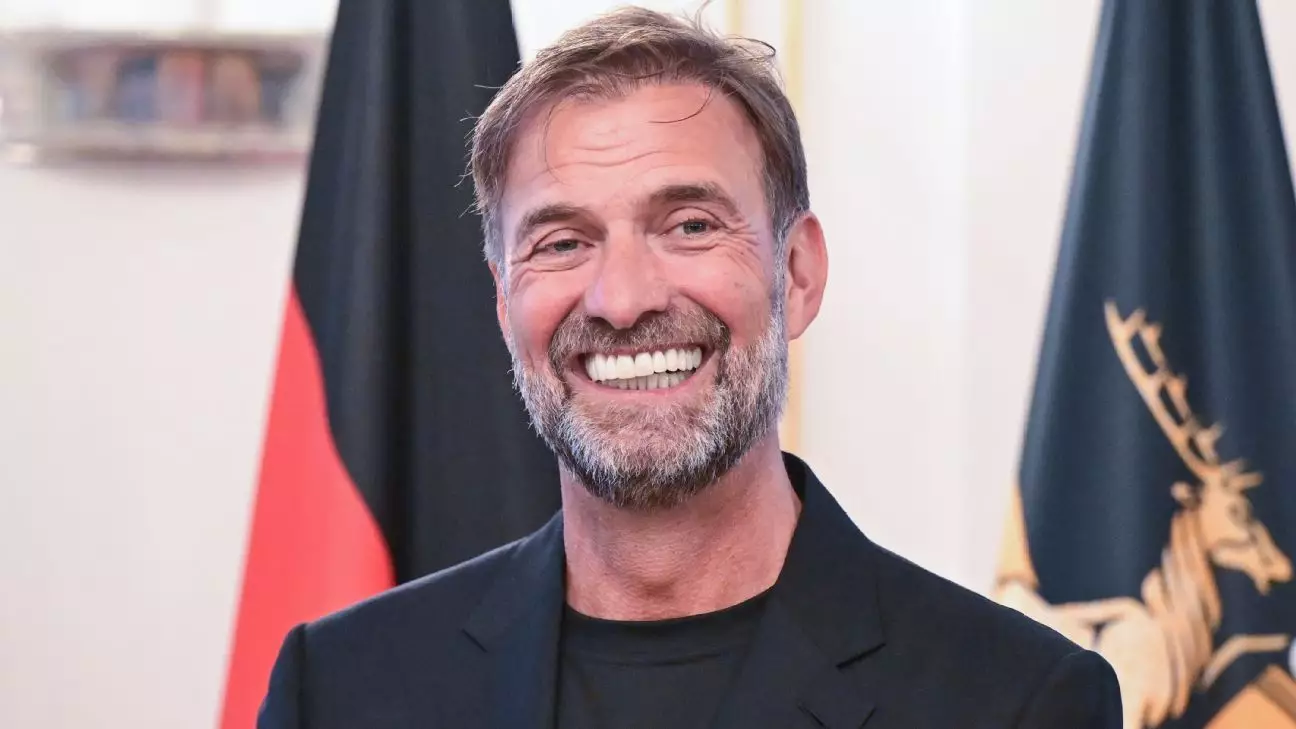The world of football is no stranger to dramatic shifts, but Jürgen Klopp’s recent transition from managing Liverpool to becoming the head of global soccer for the Red Bull group marks one of the more intriguing changes in recent times. Officially announced on Wednesday, this move signifies a notable departure for Klopp, who is widely celebrated for his dynamic sideline presence and passionate engagement with players and supporters. Swapping his iconic baseball cap and tracksuit for a suit and tie, Klopp is set to dive into a different aspect of the beautiful game, where strategic oversight and global outreach are paramount.
His primary responsibilities will encompass formulating the strategic vision for Red Bull’s football ventures, developing coaching resources, and enhancing global scouting operations across the group’s footballing portfolio, which includes clubs like RB Leipzig, RB Salzburg, and New York Red Bulls. In doing so, Klopp will be leveraging his extensive experience from almost a decade of success at Liverpool, including a UEFA Champions League victory and a Premier League title. This new role appears to be a natural progression for someone of Klopp’s caliber, although the question remains: can a revered tactician find fulfillment away from direct management?
Despite embarking on this new journey, the football community can’t help but speculate about Klopp’s potential return to touchline duties. Reports indicate that he has a release clause in his contract, allowing him to assume the role of Germany’s national team manager, should the German Football Association (DFB) come calling. Given the looming 2026 World Cup in North America, the possibility of Klopp returning to lead Die Mannschaft is not just plausible but increasingly likely.
Klopp’s departure from Liverpool was rooted in both physical and emotional exhaustion after an overwhelmingly demanding tenure. When he announced in January that he would vacate the Anfield hot seat, he cited the sustained pressures of leading such a high-profile club. This need for a break was crucial for him and his family. His initial insistence on a full year away from club management, however, has already been challenged by his premature return to a football-centric role.
Unlike many professionals in football who move seamlessly into boardroom roles after their playing careers, Klopp’s transition is somewhat unconventional. His extensive managerial history, combined with a significantly successful stint at Liverpool, positions him uniquely within the Red Bull organization. However, this brings its own set of challenges: navigating office dynamics and fostering a positive environment among coaches and scouts without stepping on crucial operational toes.
The pressure on Klopp will amplify as he becomes involved in decisions that lead to coaching changes across Red Bull’s clubs. Historically, he has shied away from the internal politics of football clubs, focusing instead on direct player relationships and match tactics. Now, however, he has positioned himself within the very strategy he previously conducted from the sidelines. The extent to which he will thrive in this new setting remains to be seen.
Searching for New Inspirations
Despite his transition, Klopp has expressed an eagerness to learn during this chapter of his career. The drive to continually evolve within the football space is indicative of his character, one that has driven success for over two decades. However, he faces a conundrum: while he relishes knowledge acquisition, the passion and adrenaline associated with direct coaching have defined much of his professional life.
His reluctance to take on another club role, particularly in England, suggests a realignment of focus for the future. The prospect of managing Germany is a tantalizing possibility; it’s a national team that might require his leadership sooner than later. Although current coach Julian Nagelsmann holds a secure position, the unpredictable nature of football can lead to sudden vacancies, making Klopp’s interim role at Red Bull seem like a temporary detour rather than a permanent change.
As Jürgen Klopp embarks on this new role with Red Bull, the football world will be watching closely. Will he find fulfillment in a less visible function, or is this simply a prelude to a dramatic return to the touchline? The landscape of football is always shifting, and with Klopp’s dual affinity for growth and tactical excellence, his next steps may lead back to the center stage sooner rather than later. Ultimately, Klopp’s journey exemplifies the fluidity of careers in football, where today’s transitions could foreshadow tomorrow’s opportunities.
